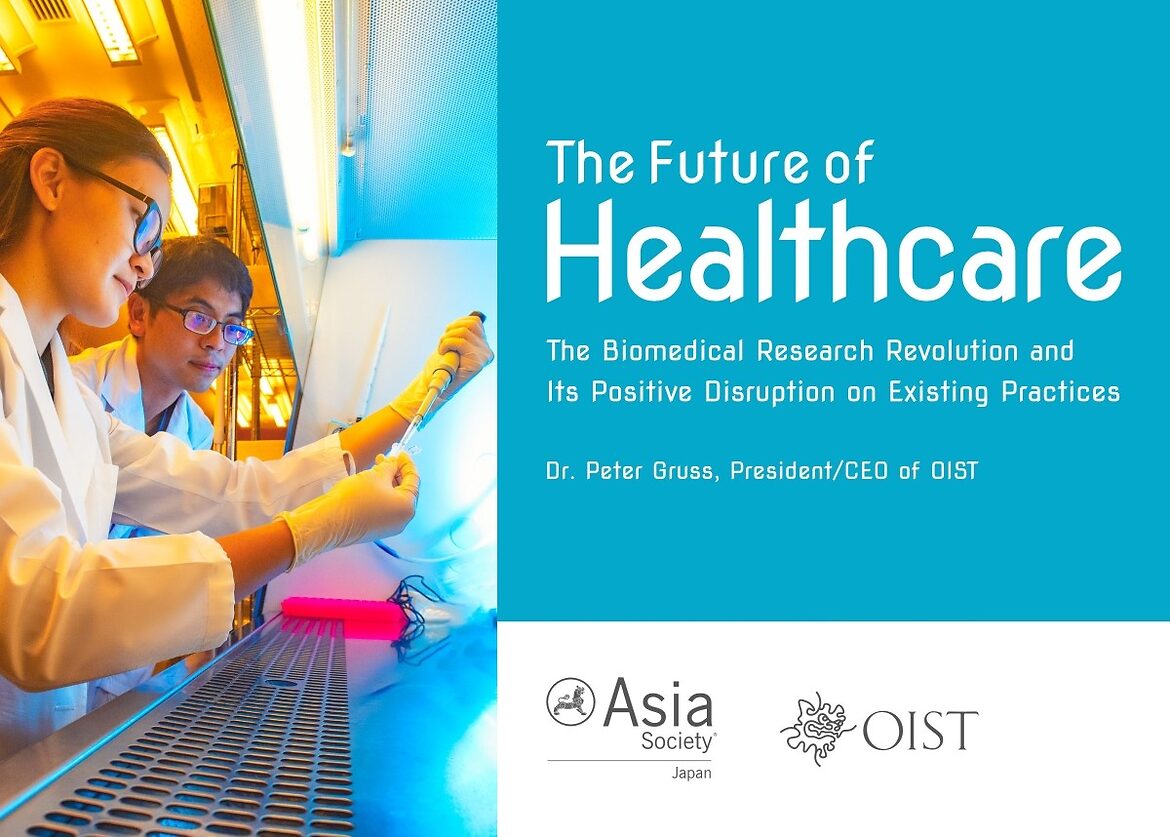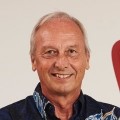The Future of Healthcare: Biomedical Research Revolution and Its Positive Disruption on Existing Practices

The Biomedical Research Revolution and Its Positive Disruption on Existing Practices
Webinar Registration: https://asiasociety.org/japan/events/future-healthcare
Date and Time: 07:45-09:00, Tuesday, September 14th
Biomedicine is a major engine for both medical progress and economic growth as well as an integral part of how health, illness, and individual identity are understood. However, the foundations of biomedicine are in the midst of a great transformation, a transformation with profound implications for medicine, research, commerce, and public policy.
This session will address real-world challenges in healthcare:
- How AI can help
- Empowering patients: telemedicine/mHealth
- Precision medicine and new therapeutics
It is an honored to have Peter Gruss, the President/CEO of OIST and one of the leading global experts in biomedicine research and practice, present his thoughts and engage with participants on a topic that clearly has far-reaching implications for both our personal lives as well as public policy.
Asia Society Japan Center and Okinawa Institute of Science and Technology Graduate University (OIST) will be co-hosting this program.
This event will be conducted in-person and online.
In-person participation is for members and guests only. Online participation is open to the public. Registration is required.
Speaker Bio

Dr. Peter Gruss
President/CEO, Okinawa Institute of Science and Technology Graduate University (2017 - present)
Dr. Peter Gruss, an internationally recognized researcher in gene regulation and embryonic development, served as President of the Max Planck Society, in Germany from 2002-2014. Previously, Dr. Gruss was Director of the Department of Molecular Cell Biology at the Max Planck Institute for Biophysical Chemistry in Göttingen for 16 years.
Dr. Gruss received multiple awards for his contributions to science, including the German Future Prize, the Officer’s Cross of the Order of Merit, the Harnack Medal, and the highest scientific honor in Germany, the Leibniz Prize. He is a member of various national and international scientific organizations including the American Academy of Arts and Sciences, the Göttingen Academy of Sciences, the European Molecular Biology Organization, and the German National Academy of Sciences Leopoldina, and is an honorary member of the National Academy of Sciences Republic of Korea and a foreign member of the Polish Academy of Sciences.



